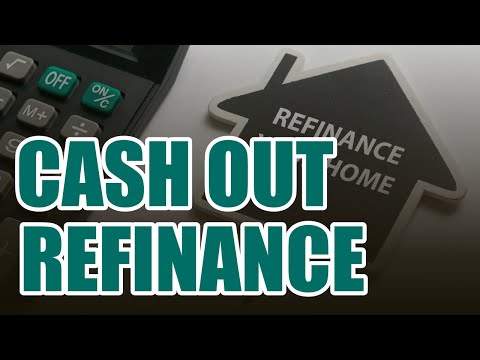Benefits of Refinancing Mortgage
Refinancing a mortgage can offer numerous advantages for homeowners. In this article, we will explore the various benefits of refinancing a mortgage and how it can potentially save you money in the long run.
Lower Interest Rates
One of the primary reasons homeowners choose to refinance their mortgage is to secure a lower interest rate. By refinancing at a lower rate, you can significantly reduce your monthly mortgage payments, allowing you to save money each month. This can add up to substantial savings over the life of your loan.
Reduced Monthly Payments
Refinancing your mortgage can also help you lower your monthly payments. If you are struggling to meet your current mortgage obligations or want to free up some extra cash each month, refinancing can provide the solution. By extending the loan term or securing a lower interest rate, you can reduce your monthly payment amount.
Debt Consolidation
Another benefit of refinancing your mortgage is the opportunity to consolidate your debt. If you have high-interest credit card debt or other loans, refinancing can allow you to roll those debts into your mortgage. This can simplify your finances by combining multiple payments into one, potentially at a lower interest rate.
Access to Equity
Refinancing your mortgage can also provide you with access to your home’s equity. If your home has appreciated since you purchased it, refinancing can allow you to tap into that equity and use the funds for home improvements, education expenses, or other financial needs. This can be a cost-effective way to borrow money compared to other loan options.
Change Loan Type
Refinancing your mortgage allows you to change your loan type. For example, if you currently have an adjustable-rate mortgage (ARM) and want more stability, you can refinance into a fixed-rate mortgage. This can provide peace of mind knowing that your interest rate and monthly payments will remain consistent throughout the life of the loan.
Shorten Loan Term
If you are looking to pay off your mortgage sooner, refinancing can help you shorten the loan term. By refinancing into a loan with a shorter term, such as going from a 30-year mortgage to a 15-year mortgage, you can potentially save thousands of dollars in interest payments and become mortgage-free faster.

Refinancing a mortgage offers numerous benefits for homeowners, including lower interest rates, reduced monthly payments, debt consolidation, access to equity, the ability to change loan types, and the option to shorten the loan term. If you are considering refinancing, it is essential to carefully evaluate your financial situation and consult with a mortgage professional to determine if it is the right choice for you.
Frequently Asked Questions
1. What is mortgage refinancing?
Mortgage refinancing is the process of replacing your existing mortgage with a new one, typically to obtain better terms or lower interest rates.
2. What are the benefits of refinancing a mortgage?
Refinancing a mortgage can offer several benefits, such as:
Lowering your monthly mortgage payments
Reducing your interest rate
Shortening the loan term
Accessing cash through a cash-out refinance
Consolidating debt
3. When is the right time to refinance a mortgage?
The right time to refinance a mortgage depends on various factors, including current interest rates, your financial goals, and how long you plan to stay in your home. It’s best to consult with a mortgage professional to determine the optimal timing.
4. Can refinancing help me save money?
Yes, refinancing can help you save money by lowering your monthly payments or reducing your interest rate. However, it’s important to consider the closing costs associated with refinancing to ensure the potential savings outweigh the expenses.
5. How does refinancing affect my credit score?
Refinancing a mortgage may have a temporary impact on your credit score. The credit inquiry and opening a new account can cause a slight dip, but responsible management of the new loan can improve your credit score in the long run.
6. Can I refinance if I have bad credit?
While it may be more challenging to refinance with bad credit, it is not impossible. Some lenders specialize in working with borrowers with less-than-perfect credit. However, you may face higher interest rates or additional requirements.
7. What documents are needed for a mortgage refinance?
Typically, you’ll need to provide documents such as income verification, bank statements, tax returns, and information about your current mortgage. The exact requirements may vary depending on the lender.
8. Can I refinance if I owe more than my home is worth?
It may be possible to refinance if you owe more than your home is worth, especially if you qualify for a government-backed program like the Home Affordable Refinance Program (HARP). However, the options could be limited, and you may need to meet certain criteria.
9. Are there any risks associated with refinancing a mortgage?
While refinancing can be beneficial, there are potential risks to consider. These include closing costs, prepayment penalties, and the possibility of extending the loan term, which could result in paying more interest over time.
10. How long does the refinancing process usually take?
The refinancing process typically takes between 30 to 45 days, but it can vary depending on various factors, such as the complexity of your financial situation, the lender’s workload, and the efficiency of document processing.




